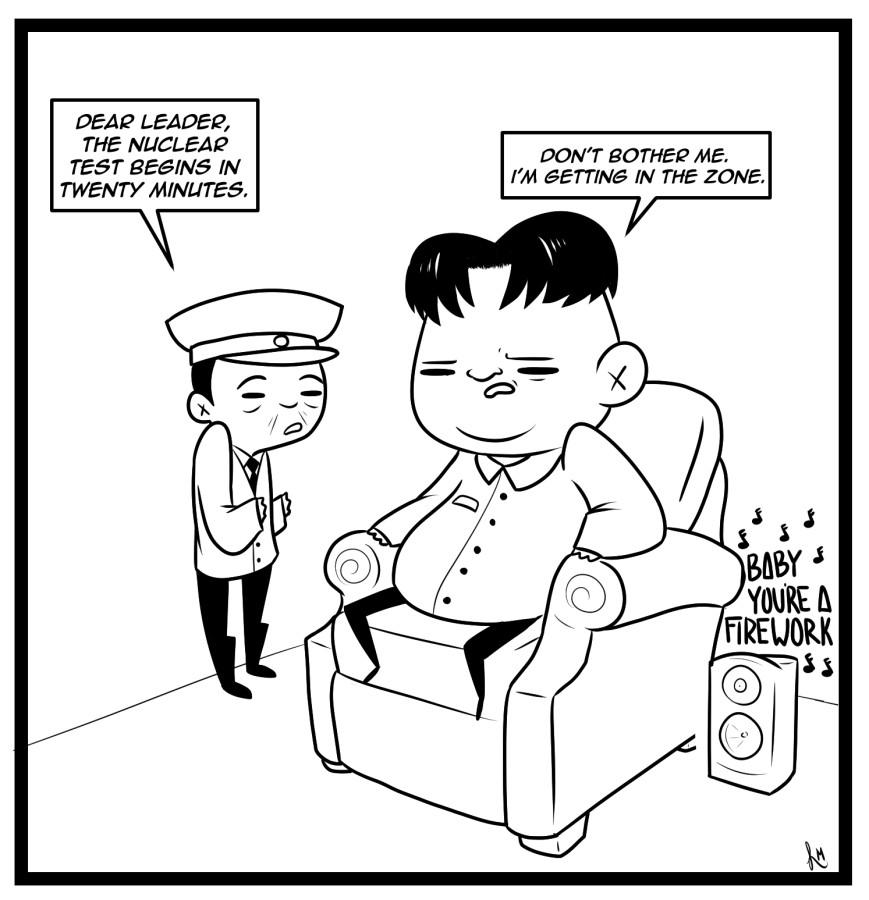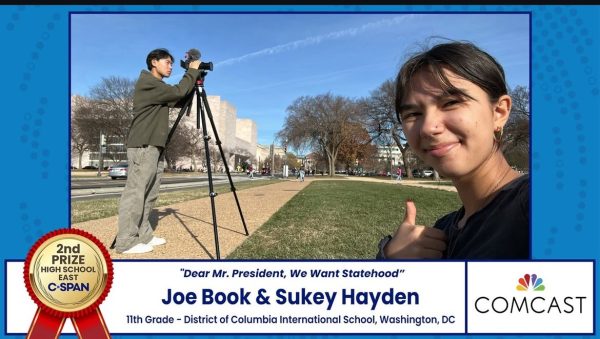After hacking, ‘The Interview’ launches itself into houses
On Christmas Day, eager moviegoers lined up in front of box offices, ready to make a political statement aimed at North Korea by seeing the new Seth Rogen and James Franco comedy, The Interview. After the hermit kingdom and a group of vigilante hackers, The Guardians of Peace, made threats of violence against those who went to the Dec.16 premiere, the film’s debut was postponed for a second time and was only shown in select theaters and online. In the end, efforts to prevent The Interview’s release not only failed, but the movie also raked in more than $6 million in theaters and $31 million online, making it Sony’s most successful online movie.
The debacle over the film’s release resulted in a renewed discussion on the issue of free speech. Celebrities, such as actor George Clooney, asserted that Americans “cannot be told [they] can’t watch something by Kim Jong-un.”
Even President Obama stepped into the fray, calling Sony’s initial decision to not release the movie “a mistake.” He sympathized with Sony’s concern for the safety and privacy of their employees, many of whom had their private emails and Social Security numbers leaked. However, he asserted that freedom of expression was an important right to protect.
The Interview faced even more controversy when it came under fire for poking fun at a regime that commits serious human rights abuses. In 2013, the United Nations formed a Commission of Inquiry on Human Rights in the Democratic People’s Republic of Korea (DPRK) which is carrying out an investigation on possible crimes against humanity that are occurring under Kim Jong-un’s rule.
These include, according to the commission, “violations of the right to food, violations associated with prison camps, torture and inhumane treatment,” among many other atrocities.
Some students, like those fighting for the people suffering under Kim Jong-un’s regime, see the movie as offensive and ignorant of the starvation and abuse that happens in North Korea.
“I feel that this film does not take the suffering of the citizens seriously,” president of Lake Braddock’s Liberty in North Korea (LiNK) club Samreen Singh said. “It causes the viewers to not recognize how terribly the regime treats the citizens of North Korea.”
On the other hand, some in LiNK saw nothing wrong with the movie and thought it was beneficial to their cause.
“I thought it was harmless,” secretary John Kook said. “In fact, I was glad that Sony made this movie. Although it’s funny, it mentioned a lot of current problems that are going on in North Korea like propaganda and starvation.”
Moviegoers, like senior Elspeth Ripley, saw the movie as a lighthearted comedy rather than the subject of an intense debate over human rights and diplomacy.
“I was expecting something that could really be offensive to Kim Jong-un, but I didn’t find anything incredibly critical or demeaning,” Ripley said. “Do I think it lived up to the hype, though? No.”




